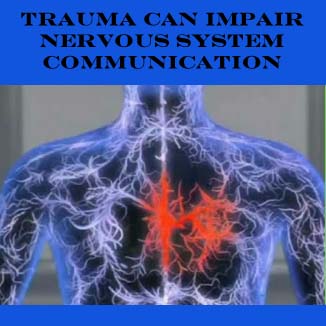Symptoms, Treatment & Recovery
Emotional and psychological trauma is far more common than most people realise. You don’t have to live in a war zone, get raped or assaulted to experience emotional and psychological trauma.
Most of us have experienced some degree of emotional and psychological trauma during childhood. Maybe it was the school bully or an overly strict parent. Maybe you got separated from your family in a busy crowd when you were little. For some the trauma is related to far more frightening events such as alcoholic or abusive parents.
It is not the event that determines whether something is traumatic to someone, but the individual’s experience of the event.
It is important to understand that it is not the event that determines whether something is traumatic to someone, but the individual’s experience of the event.
What is Emotional and Psychological Trauma?
Emotional and psychological trauma is the result of extraordinarily stressful events that shatter your sense of security, making you feel helpless and vulnerable in a dangerous world.
Traumatic experiences often involve a threat to life or safety, but any situation that leaves you feeling overwhelmed and alone can be traumatic, even if it doesn’t involve physical harm. It’s not the objective facts that determine whether an event is traumatic, but your subjective emotional experience of the event. The more frightened and helpless you feel, the more likely you are to be traumatized.

Causes of Emotional and Psychological Trauma
An event will most likely lead to emotional or psychological trauma if:
- It happened unexpectedly.
- You were unprepared for it.
- You felt powerless to prevent it.
- It happened repeatedly.
- Someone was intentionally cruel.
- It happened in childhood.
Emotional and psychological trauma can be caused by single-blow, one-time events, such as a horrible accident, a natural disaster, or a violent attack. Trauma can also stem from ongoing, relentless stress, such as living in a crime-ridden neighborhood or struggling with cancer.
Commonly overlooked Causes
of Emotional and Psychological Trauma
- Falls or sports injuries
- Surgery (especially in the first 3 years of life)
- The sudden death of someone close or even a close pet
- A car accident
- The breakup of a significant relationship
- A humiliating or deeply disappointing experience
- The discovery of a life-threatening illness or disabling condition
Risk factors that increase your vulnerability to Trauma
Not all potentially traumatic events lead to lasting emotional and psychological damage. Some people rebound quickly from even the most tragic and shocking experiences. Others are devastated by experiences that, on the surface, appear to be less upsetting.
A number of risk factors make people susceptible to emotional and psychological trauma. People are more likely to be traumatized by a stressful experience if they’re already under a heavy stress load or have recently suffered a series of losses.
People are also more likely to be traumatized by a new situation if they’ve been traumatized before – especially if the earlier trauma occurred in childhood.
Childhood trauma increases the risk of future trauma
Experiencing trauma in childhood can have a severe and long-lasting effect. Children who have been traumatized see the world as a frightening and dangerous place. When childhood trauma is not resolved, this fundamental sense of fear and helplessness carries over into adulthood, setting the stage for further trauma.
Childhood trauma results from anything that disrupts a child’s sense of safety and security, including:
- An unstable or unsafe environment
- Separation from a parent
- Serious illness
- Intrusive medical procedures
- Sexual, physical, or verbal abuse
- Domestic violence
- Neglect
- Bullying
Symptoms of Emotional and Psychological Trauma
Following a traumatic event, or repeated trauma, people react in different ways, experiencing a wide range of physical and emotional reactions. There is no “right” or “wrong” way to think, feel, or respond to trauma, so don’t judge your own reactions or those of other people. Your responses are NORMAL reactions to ABNORMAL events.
Emotional and psychological symptoms of trauma:
- Shock, denial, or disbelief
- Anger, irritability, mood swings
- Guilt, shame, self-blame
- Feeling sad or hopeless
- Confusion, difficulty concentrating
- Anxiety and fear
- Withdrawing from others
- Feeling disconnected or numb
Physical symptoms of trauma:
- Insomnia or nightmares
- Being startled easily
- Racing heartbeat
- Aches and pains
- Fatigue
- Difficulty concentrating
- Edginess and agitation
- Muscle tension
These symptoms and feelings typically last from a few days to a few months, gradually fading as you process the trauma. But even when you’re feeling better, you may be troubled from time to time by painful memories or emotions—especially in response to triggers such as an anniversary of the event or an image, sound, or situation that reminds you of the traumatic experience.
When to seek professional help
for Emotional or Psychological Trauma
Recovering from a traumatic event takes time, and everyone heals at his or her own pace. But if months have passed and your symptoms aren’t letting up, you may need professional help from a trauma expert.
Seek help for emotional or psychological trauma if you’re:
- Having trouble functioning at home or work
- Suffering from severe fear, anxiety, or depression
- Unable to form close, satisfying relationships
- Experiencing terrifying memories, nightmares, or flashbacks
- Avoiding more and more things that remind you of the trauma
- Emotionally numb and disconnected from others
- Using alcohol or drugs to feel better
I have extensive experience in assisting clients release emotional and psychological trauma using a variety of advanced therapies that utilise the power of your unconscious mind to achieve fast and reliable results.
Recent Comments